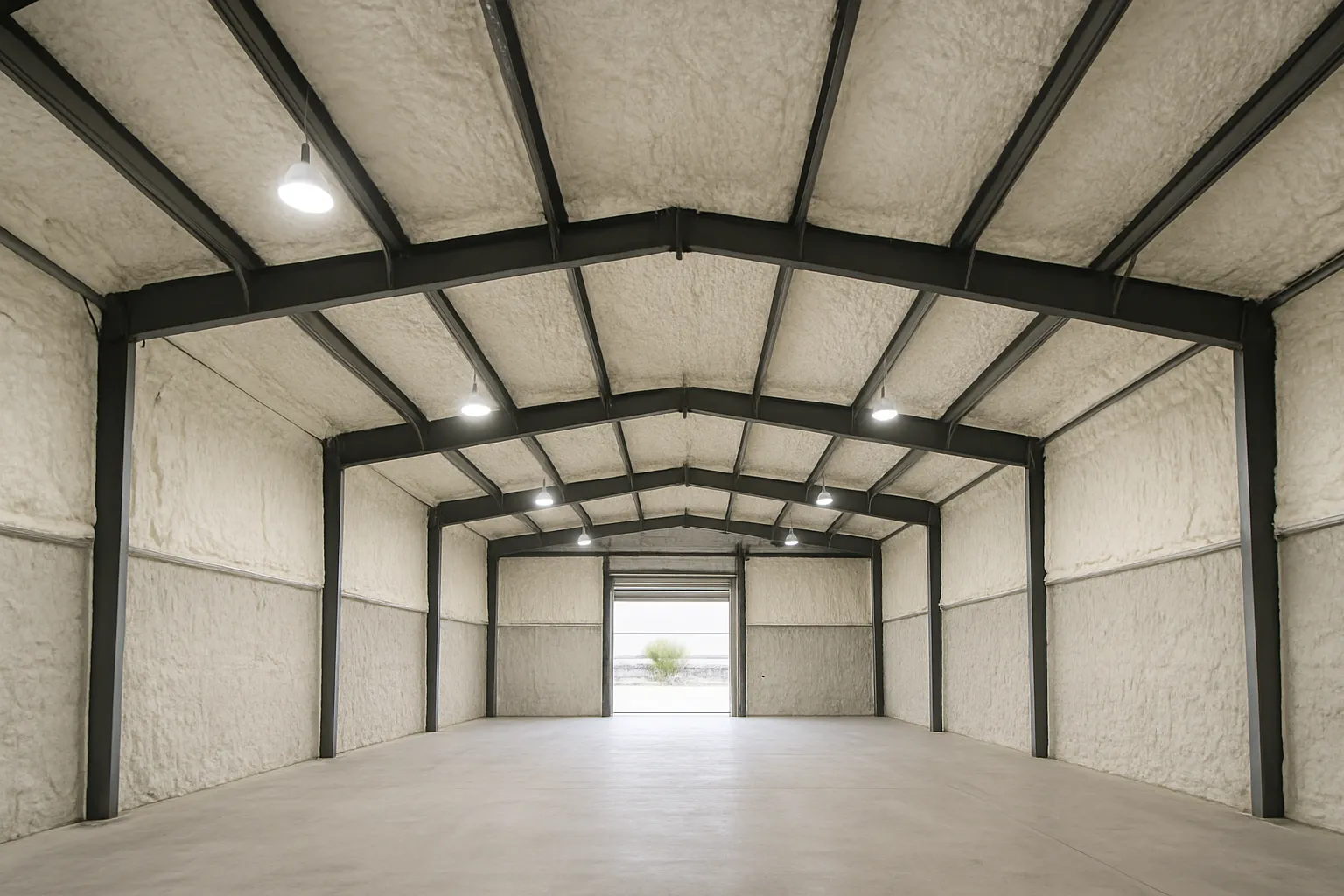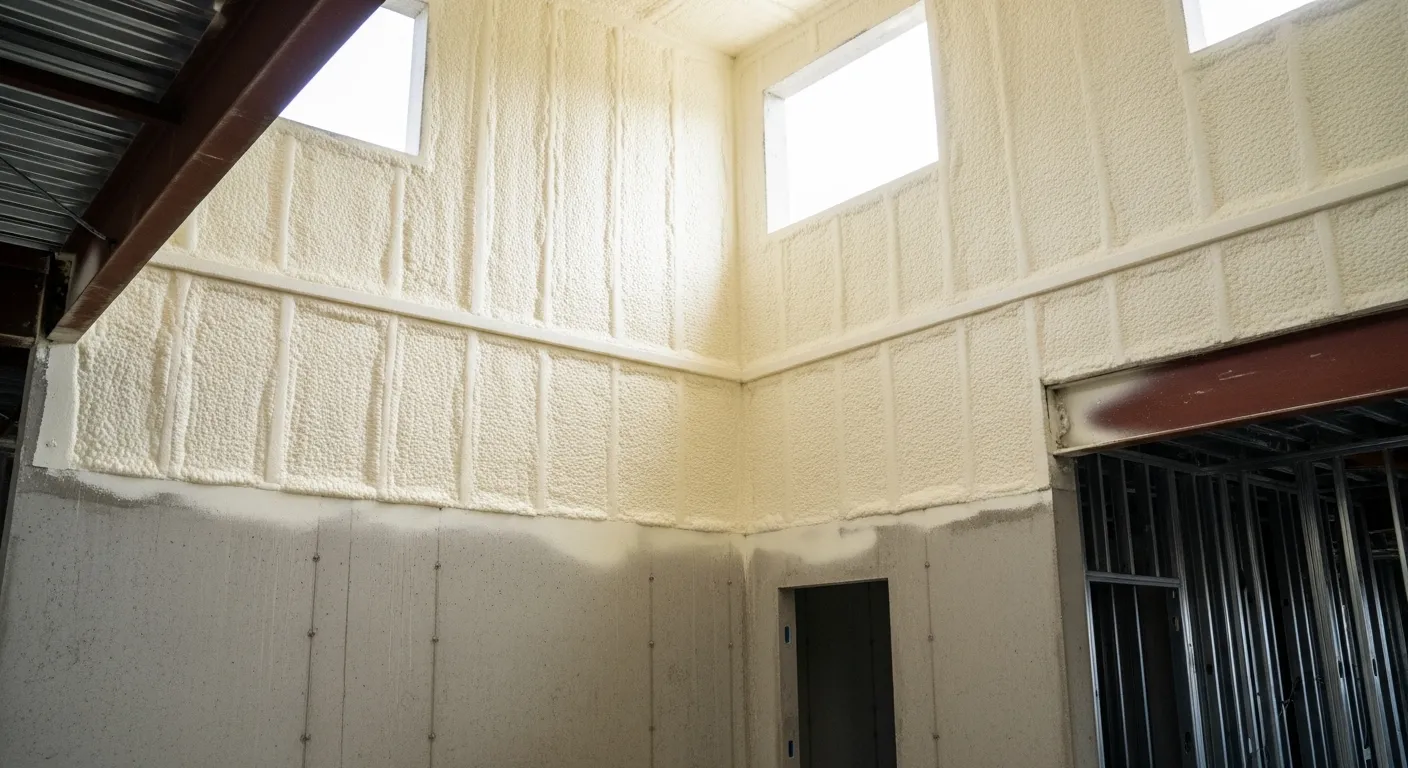
Imagine a winter where your livestock are protected from the brutal Montana cold, or a summer where your valuable crops aren't at risk from soaring temperatures. For farmers and producers in Kalispell and the surrounding areas, achieving this level of control is now within reach through professional agricultural insulation. Wegner Insulation LLC delivers advanced solutions that not only protect your assets but also enhance your farm's profitability and long-term sustainability.
Controlling the climate inside your agricultural buildings is one of the most effective ways to lower operational costs and increase your bottom line. Uninsulated or poorly insulated structures leak enormous amounts of expensive heated or cooled air, forcing your HVAC systems to work overtime. By creating a seamless, airtight thermal barrier, our insulation services drastically reduce the energy needed to maintain optimal temperatures, leading to significant and immediate savings on your monthly utility bills.
This investment pays dividends beyond energy savings. A stable, comfortable environment directly contributes to the health and productivity of your livestock. Industry research shows that animals free from temperature stress are healthier, more productive, and have better growth rates. Proper insulation provides a consistent climate that fosters animal well-being, translating into higher yields and a healthier, more profitable operation for you.
Key Benefits of Agricultural Insulation:
For the demanding environment of an agricultural setting, spray polyurethane foam (SPF) is the superior insulation material. Unlike traditional insulation like fiberglass batts, which can sag, hold moisture, and become nesting grounds for pests, spray foam creates a monolithic, rigid barrier. It adheres directly to wood, metal, and concrete, sealing every crack and gap to eliminate drafts and moisture intrusion, providing unparalleled performance and durability for years to come.
Spray foam insulation is available in two primary types, each suited for different agricultural needs. Understanding their distinct properties allows for a customized solution that maximizes efficiency and protection for your specific buildings. This is where a deep knowledge of building science becomes critical to ensuring the right material is used in the right application.
Feature | Closed-Cell Spray Foam | Open-Cell Spray Foam |
R-Value | Highest per inch (R-6 to R-7) | Good (R-3.5 to R-4) |
Moisture Barrier | Yes (Vapor impermeable) | No (Vapor permeable) |
Structural Strength | Adds rigidity and strength | Flexible and soft |
Best For | Metal buildings, high-moisture areas | Interior walls, noise reduction |

Pole barns and metal buildings are staples of modern farming, but their construction presents unique insulation challenges. The large, open bays and corrugated metal surfaces are notoriously difficult to seal with conventional materials. Spray foam insulation is the perfect solution, as it expands to fill every void, conforming perfectly to any surface shape and creating a complete air and moisture seal that is impossible to achieve otherwise.
This versatility makes it the ideal choice for a wide range of agricultural structures throughout the Flathead Valley. Whether you need to protect a herd of dairy cows, store thousands of bushels of grain, or keep a workshop comfortable for year-round work, a professionally applied insulation system will deliver results. Each application is tailored to the building's specific function to ensure maximum benefit.
Common Agricultural Applications:
Achieving total climate control is about more than just temperature; it’s about managing air quality, humidity, and moisture. A deep understanding of building science is essential to create a system that works. For example, a study by the University of Minnesota found that properly insulating a dairy barn can increase milk production by up to 8% during cold winter months simply by reducing thermal stress. This highlights how an integrated approach to insulation and ventilation is key to performance.
As a family-owned company, we are committed to providing you with a healthy and efficient space for your animals, crops, and employees. By completely sealing the building envelope, our insulation prevents the infiltration of outside allergens, pollutants, and moisture. This not only protects the building's structure from rot and rust but also creates a healthier indoor air space, which is vital for both livestock well-being and worker safety.
Farming in the Flathead Valley means dealing with a climate of extremes. The bitterly cold winters can put immense stress on your animals and your heating budget, while hot summer days can threaten sensitive crops and overheat poorly ventilated barns. These conditions demand an insulation solution that can perform reliably year after year, without degrading or losing effectiveness.
As a local business, we are intimately familiar with the challenges Montana’s weather presents to the agricultural community. We are not just service providers; we are your neighbors, dedicated to offering personalized solutions that make sense for your farm. We leverage our building science expertise to design and install insulation systems that are built to withstand our unique climate, protecting your investments and improving your operations.
Ready to improve your farm's efficiency and protect your assets? Contact Wegner Insulation LLC for a comprehensive assessment and a no-obligation quote. Call us at (406) 654-4636 or reach out via email at wegnerinsulation.com to get started.
It maintains stable temperatures, reducing stress on animals and improving their health, comfort, and productivity year-round.
Absolutely. Spray foam is ideal for existing structures as it adheres to nearly any surface and seals all existing gaps and cracks.
Yes, once cured, modern spray foam is inert and non-toxic, making it completely safe for both animals and food storage areas.
Yes, closed-cell spray foam is a powerful moisture barrier that stops condensation from forming on metal surfaces, preventing rust and water damage.
The timeline depends on the project size, but most agricultural jobs can be completed efficiently to minimize disruption to your operations.